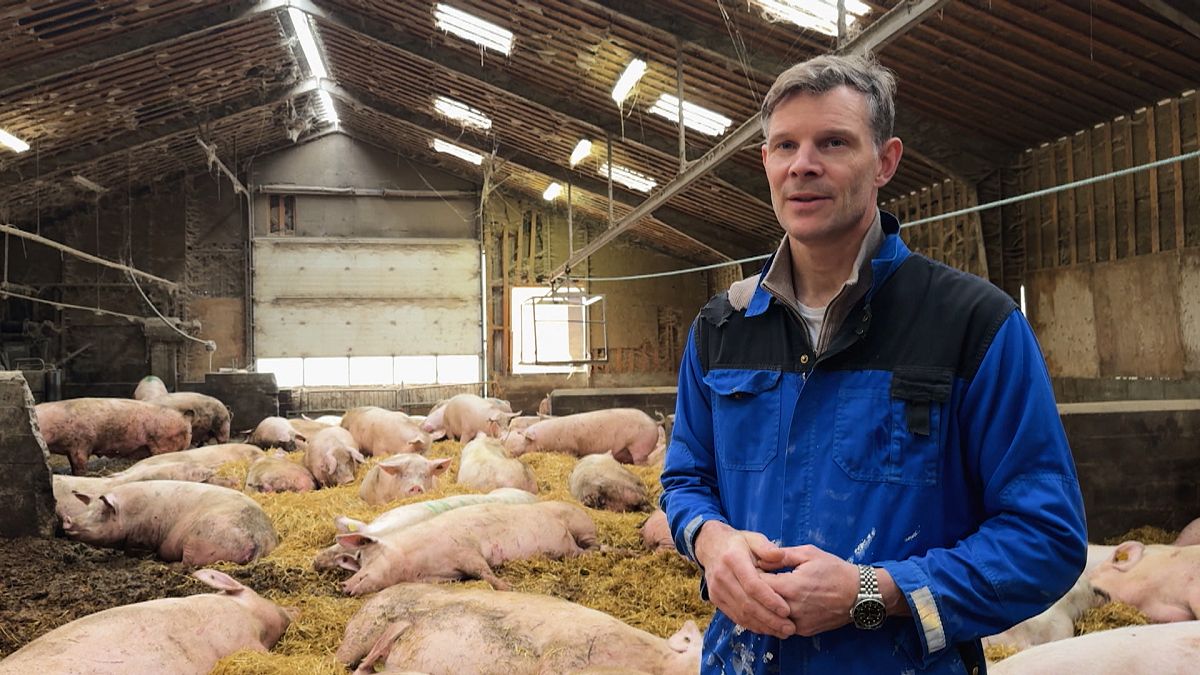The European Union wants to become carbon neutral by 2050. But there is no consensus on how to achieve this, especially when it comes to the agricultural sector. Euronews reporter Valerie Gauriat went to Denmark, which wants to introduce a carbon tax on livestock farming from 2030. A world first.
The agricultural sector generates 11.4 percent of greenhouse gas emissions in Europe, mostly due to livestock farming.
They come mainly from the digestion of feed by cattle and sheep, and from the storage of cattle and pig manure.
Added to this are emissions produced by the spreading of chemical fertilizers, and the manure spread by farmers or excreted by cattle.
France, Germany, and Poland are the largest emitters of agricultural GHGs in the European Union. But Denmark, a major exporter of dairy products and pork, is not far behind. Livestock farming is the country’s second-largest source of greenhouse gas emissions after energy.
The livestock carbon tax project, yet to be voted on by the Danish Parliament, is controversial.
Farmer Peter Kiær, chairman of the Danish Association for Sustainable Agriculture, produces pigs for the export market.
He believes the new tax will be counterproductive and lead to farmers moving their production to other countries.
“Danish farmers want to be the greenest, and use the best technology to keep the pollution as low as possible. The tax will make it harder toinvest in green technology,” he says.
“If Denmark is the only country with a carbon tax, I won’t be competitive to the other countries, and I’ll have to stop producing pigs.” The only way a tax could work says Peter Kiær, is if it is generalized “to all the countries in Europe”.
Jette Bredahl Jacobsen, Vice-Chair of the European Scientific Advisory Board on Climate Change, agrees that more should be done at European level to reduce agricultural GHG emissions.
“We need to implement some sort of pricing mechanism in agriculture, and give incentives to reduce emissions. And we must also revise the common agricultural policy. Because as it is today, a large amount of the subsidies are going to greenhouse gas intensive productions and not to less carbon intensive production forms.”
Under pressure from farmers, the European Commission has however given up this year on integrating specific measures for agriculture into its climate objectives for 2040.
Read the full article here


